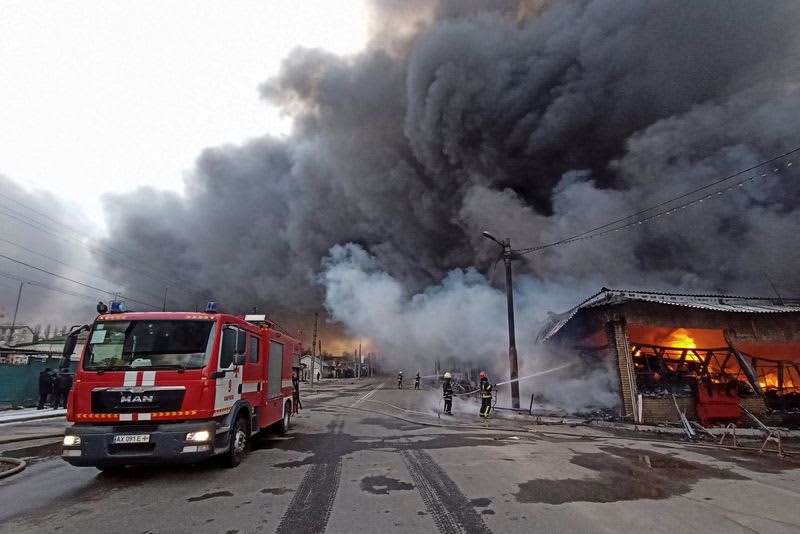Allow me first of all to thank OCHA for moderating this discussion, the Permanent Missions of Qatar, Germany, EU, Belgium, the Dominican Republic, the United States and Switzerland for co-sponsoring and Geneva Call for co-organizing with UNICEF. This is such an important event addressing how we can improve access to provide humanitarian assistance and protection to children affected by conflicts.
For UNICEF, as an operational agency guided by the Humanitarian Principles; funding, capacities, and access are the three basic factors that allow us to deliver for children in line with the Core Commitments for Children in Humanitarian Action. As a result, this topic cuts through the heart of every aspect of our work in conflict-affected settings around the world.
Let me zoom in on the Middle East and North Africa. I can affirm that overall, the frequency and complexity of humanitarian access constraints weigh heavily on the delivery of lifesaving humanitarian assistance in many parts of the region. Long-term armed conflicts coupled with huge political complexities, geo-political dynamics, fluid lines of control, and a large presence of multiple non-state actors have all made sustained access to children a major challenge especially over the past decade. In addition, some member states’ laws, and policies – including sanctions and counterterrorism measures – can unintentionally but equally constrain our ability to reach children in need wherever they are in this region.
I wish to highlight two general points crucial to the issue in question, (1) the primary responsibility of host countries to facilitate humanitarian access for children and (2) the need for improved humanitarian space to engage with all parties, including armed groups, to deepen their engagement to prevent and end grave violations and to better access children with the assistance they need.
To my first point, I wish to reiterate the responsibility of host states and those with influence over them to abide by their international obligations and facilitate rapid and unimpeded humanitarian access to children in need. This includes, faster, more predictable, and sustained movement of humanitarian supplies and personnel. In the MENA region, as in several other global contexts, we often find ourselves challenged by bureaucratic delays or denials of visas and other administrative processes that affect urgent humanitarian action. Without the adequate staff and partners on the ground at the right place and at the right time, our humanitarian operations will become simply “inoperable.” When support isn’t forthcoming, we face significant delays in the delivery of lifesaving items for children including health supplies like vaccines with short shelf life, therapeutic feeding for children and water and sanitation components, in addition to supplies critical for children’s education. Meanwhile, children’s needs and vulnerabilities continue to grow. Children are always the first and most to suffer.
UNICEF and partners operate in complex and high threat environments in MENA. UNICEF engages with all parties to the conflict to facilitate the delivery of assistance to children in line with our mandate and to enhance parties’ compliance with their responsibilities to protect children.
UNICEF does not act alone: we operate in an inter-agency setting, where we add our comparative strength in our child-centered focus and our large operational presence, to that of other agencies and partners working on the ground and also compelled to do so by similar principles and mandates.
Of particular note is our engagement around the Security Council’s Children and Armed Conflict agenda, in which some parties – both State and non-State– are listed for grave violations against children. In close cooperation with the Office of the Special Representative for Children and Armed Conflict, the UN on the ground engages in situations of concern and with listed parties on “action plans” to halt and prevent grave violations against children, including killing and maiming, recruitment and use, and attacks on health and education facilities. We also engage to develop “handover protocols” to release children from detention, and strengthen respect for education, health, and other humanitarian functions. An example is Syria and Yemen with regards to the release of children recruited into the fighting, their rehabilitation and eventually reintegration into the community.
Your excellencies,
I would like to conclude with three concrete asks.
- We need Member States to allow and prioritize principled humanitarian access. Over the past decade, as progress has stalled in the sphere of peace and security, the MENA region has been the epicenter of complexities in humanitarian access, impacting (in some cases) our access to affected children. Restrictions, sanctions, counter-terrorism measures, and donor conditionalities continue to put pressure on humanitarian actors, jeopardizing the principles of humanity, independence, neutrality, and impartiality. This has come at a cost, including an increase in security risks and a reduced acceptance among affected populations we are there to serve. Unambiguous approaches, emphasizing the principled nature of humanitarian action in words and action, will better enable humanitarian actors to reach families and children in need.
- Strengthening humanitarian access for children means that we recognize the broad spectrum of the challenges. The actions of non-state armed actors – especially in areas under their control – can certainly be one major impediment. This is why humanitarian actors need the necessary space to engage with such parties to provide assistance and protection to affected populations. Such humanitarian engagement must be understood as distinct from engagement with armed groups for political or other agendas. In return, member states with influence over armed groups can play a significant role to facilitate humanitarian access.
Finally, achieving humanitarian access to reach children in need must remain a shared responsibility and priority. This is true for all Member-States, including, Security Council members and host governments alike, international, and local organizations, including non-governmental organizations. Different entities must each play their distinct roles. This panel is a very welcome illustration of organizations with unique mandates coming together to achieve common goals.
Thank you for giving us this opportunity.
Source: UN Children’s Fund


